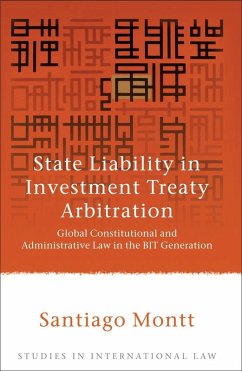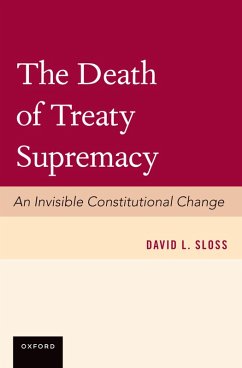
Death by Moderation (eBook, PDF)
The U.S. Military's Quest for Useable Weapons
Versandkostenfrei!
Sofort per Download lieferbar
21,95 €
inkl. MwSt.
Weitere Ausgaben:

PAYBACK Punkte
11 °P sammeln!
This book addresses an important but little-noticed phenomenon in the revolutionary world of military technology. Across a wide range of otherwise-unrelated weapons programs, the Pentagon is now pursuing arms that are deliberately crafted to be less powerful, less deadly, and less destructive than the systems they are designed to supplement or replace. This direction is historically anomalous; military forces generally pursue ever-bigger bangs, but the modern conditions of counter-insurgency warfare and military operations 'other than war' (such as peacekeeping and humanitarian assistance) dem...
This book addresses an important but little-noticed phenomenon in the revolutionary world of military technology. Across a wide range of otherwise-unrelated weapons programs, the Pentagon is now pursuing arms that are deliberately crafted to be less powerful, less deadly, and less destructive than the systems they are designed to supplement or replace. This direction is historically anomalous; military forces generally pursue ever-bigger bangs, but the modern conditions of counter-insurgency warfare and military operations 'other than war' (such as peacekeeping and humanitarian assistance) demand a military capable of modulated force. By providing a capacity to intervene deftly yet effectively, the new generations of 'useable' weaponry should enable the U.S. military to accomplish its demanding missions in a manner consistent with legal obligations, public relations realities, and political constraints. Five case studies are provided, regarding precision-guided 'smart bombs', low-yield nuclear weapons, self-neutralizing anti-personnel land mines, directed-energy anti-satellite weapons, and non-lethal weapons.
Dieser Download kann aus rechtlichen Gründen nur mit Rechnungsadresse in A, B, BG, CY, CZ, D, DK, EW, E, FIN, F, GR, HR, H, IRL, I, LT, L, LR, M, NL, PL, P, R, S, SLO, SK ausgeliefert werden.













